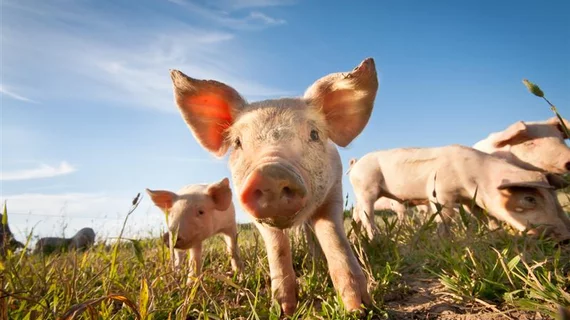Alabama woman first in world to receive 10-gene-edited pig kidney
Clinicians from New York University’s Langone Health have successfully implanted a pig kidney into a patient, who reports she is “full of energy” and feeling great.
The first-of-its-kind procedure took place about three weeks ago but was only announced in a blog post on the NYU Langone website. The pig kidney used was gene-edited to improve compatibility with humans and to reduce the likelihood of rejection.
Towana Looney, 53, of Alabama, was the first to undergo this life-saving procedure after donating one of her kidneys to her mother in 1999. This led to preeclampsia and high blood pressure, which eventually resulted in chronic kidney disease. With her remaining kidney damaged, Looney was in urgent need of a new one. But, after eight years on the waiting list and regular dialysis treatments, she had lost hope of finding a compatible human kidney.
Now, she says she feels stronger after receiving the 10-gene-edited pig kidney. "[I have] an appetite I've never had in eight years," Looney said during a press conference.
"I can put my hand on this kidney and feel it buzzing. It's so strong," she shared.
Looney remains near NYU Langone for ongoing evaluation, though doctors believe she could return to her home in Gaston, Alabama, in less than three months.
"The intention there was just to try to extend her life," said Robert Montgomery, MD, adding that Looney’s recovery is progressing well. "We feel that the pig kidney can replace a human kidney and recapitulate all the different functions that the human kidney does."
Although Montgomery acknowledged that the field of xenotransplantation—transplanting animal organs into humans—is still in its “infancy,” the success of this procedure opens the door for NYU Langone to consider it as an option for patients in the future. He believes improvements in the technology have reduced the likelihood of organ rejection.
The transplant was made possible through the U.S. Food and Drug Administration’s (FDA) Extended Access program, which allows for the use of experimental treatments for patients in need.
Looney is the first to receive a kidney from a pig with 10 gene edits and is currently the only person in the world living with a pig organ, NYU Langone noted.
Read the post here.

